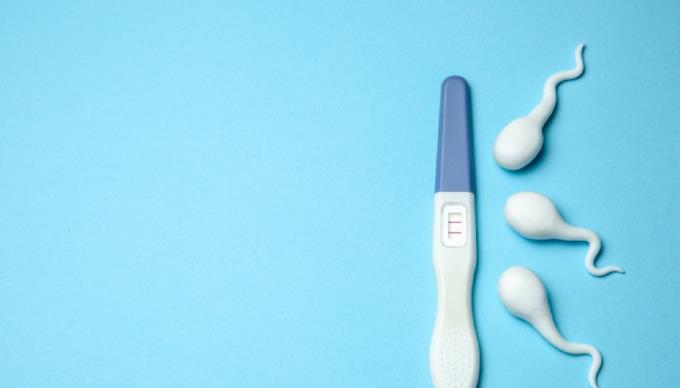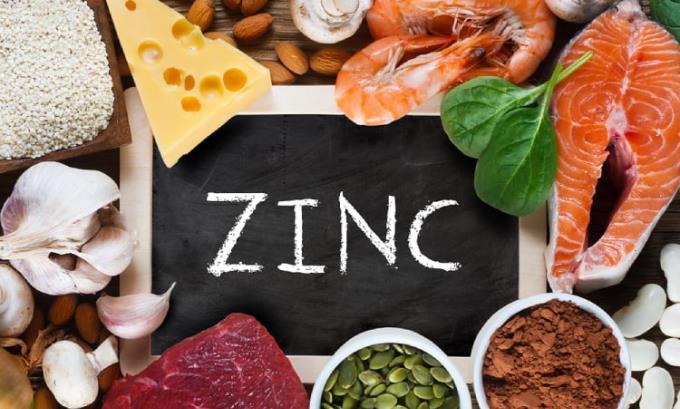It can be said that nutrition is the foundation to decide all human health problems, including reproduction. For that reason, many people also wonder what nutrients to eat or supplement to make conception easier. Speaking of which, it is impossible not to mention the mineral zinc as well as its role in fertility in both men and women.
Many nutrition experts have recommended that women who want to become pregnant need to have their zinc levels tested 3 months before they are sure they are deficient in this nutrient. Because it greatly affects your ability to have children. Let aFamilyToday Health find out details through the article below.
The role of zinc in fertility in women
Zinc plays a very important role in fertility in both men and women. Especially for women, the need for zinc supplements before pregnancy is extremely necessary. Any shortage happens to have a marked effect.
1. How does zinc help to improve fertility in women?

The imbalance of hormones in the body can impact significantly on pregnancy. While levels of hormones such as testosterone, estrogen and progesterone need to be optimized for optimal fertility. The mineral zinc is the key to making this possible.
The presence of zinc in the body is also involved in reproduction. After ovulation, the egg needs to successfully travel through the fallopian tubes to reach the uterus, from where fertilization takes place. During the egg's journey through the fallopian tubes, it is essential to maintain the proper level of follicular fluid in the fallopian tubes. Zinc helps to make this process smoother.
Although all of the above can be achieved, the first thing is that the body has to produce a significant amount of eggs and the eggs must be strong to increase the ability to fertilize more. In which, zinc is also a nutrient that helps to increase the quality of eggs.
With the above benefits, it is absolutely advisable to consider including zinc in your diet to prepare for pregnancy.
2. What if a woman has a zinc deficiency?
There are many reasons why women suffer from infertility , one of the most common being the appearance of fibroids. Zinc is known for its role in controlling these fibroids. However, if your body is deficient in this mineral, the tumors can become inflamed, hindering your pregnancy.
Several reports have also shown a link between dietary zinc deficiency and miscarriage in pregnant women. Because, zinc plays an important role in the early stages of fetal development, especially with cell development, immune support. Therefore, a lack of zinc can lead to miscarriages, pregnancy toxicity, low birth weight and other problems during pregnancy, labor and delivery.
The role of zinc in male fertility
Similar to women, men also need zinc supplements to support better fertility.
1. How does zinc improve male fertility?

This mineral is essential for male reproductive health , influences hormone metabolism, is involved in prostate function and sperm formation.
One of the key factors of zinc in male fertility is sperm production. In fact, each ejaculation will cause the body to consume about 5mg of zinc (equivalent to 1/2 of the zinc the male body can absorb in a day). Therefore, almost all sperm depletion is caused by zinc deficiency.
Not all sperm can successfully reach an egg, and that depends a lot on their structure and shape. Furthermore, poor sperm movement is one of the causes of male infertility. Zinc is considered an effective "assistant" of men in helping to increase the mobility and endurance of the sperm when they swim to the egg to fertilize.
Zinc content in the male body is concentrated in the semen and prostate gland. As a result, zinc deficiency can lead to prostate enlargement. Another very important piece of information is that zinc has the ability to stimulate the production of a protein that inactivates cadmium, a prostate carcinogen.
2. What will a male deficiency of zinc in the diet lead to?
Although there are many benefits to the ability to have children, many men today do not meet the essential need for this nutrient in their diet .
Zinc deficiency in men leads to many different disorders, affecting fertility problems. Specifically, the sperm produced in the absence of zinc will lack the necessary structures such as the head and tail to be able to move through a woman's vagina. This leads to many sperms that easily die before meeting the eggs, so they cannot fertilize.
Likewise, zinc deficiency leads to deficiencies in the sperm's genetic information. This has become quite common in recent times due to problems related to lifestyle changes. However, this condition can be easily corrected with zinc supplementation.
Recommended daily intake
Both men and women need a specific amount of zinc daily if they want to increase the ability to have children.
1. For men
The recommended level is about 11mg of zinc per day. This can be achieved by adjusting the diet and choosing foods rich in zinc . However, if you have previously been diagnosed with a sperm problem or an anomaly in its structure, you may need to increase your intake to almost 35-50mg per day.
2. For women
Women will typically need about 8mg of zinc per day. However, this requirement also increases to about 11mg when you are pregnant, about 12mg after giving birth and during breastfeeding.
Suggestions for foods rich in zinc

If you want to add more zinc to improve your fertility, you need to add the following zinc-rich foods to your diet:
Seafood like shrimp and oysters
Sesame seeds or pumpkin seeds
Some meats such as turkey, lamb, and beef
Take a probiotic supplement like yogurt
Vegetables, beans (especially green beans) ...
Should I take a zinc supplement?
Zinc supplementation with dietary supplements is often recommended for those who have had major deficiencies or are unable to absorb the required zinc levels even after a healthy diet is followed. 15mg is believed to be the required dose, while doctors may recommend a higher dose if needed.
Zinc can be considered as a type of "mineral reproduction" which is very useful in supporting fertility for both women and men. Besides, you should also combine with a healthy lifestyle, along with adding other nutrients to increase efficiency!














